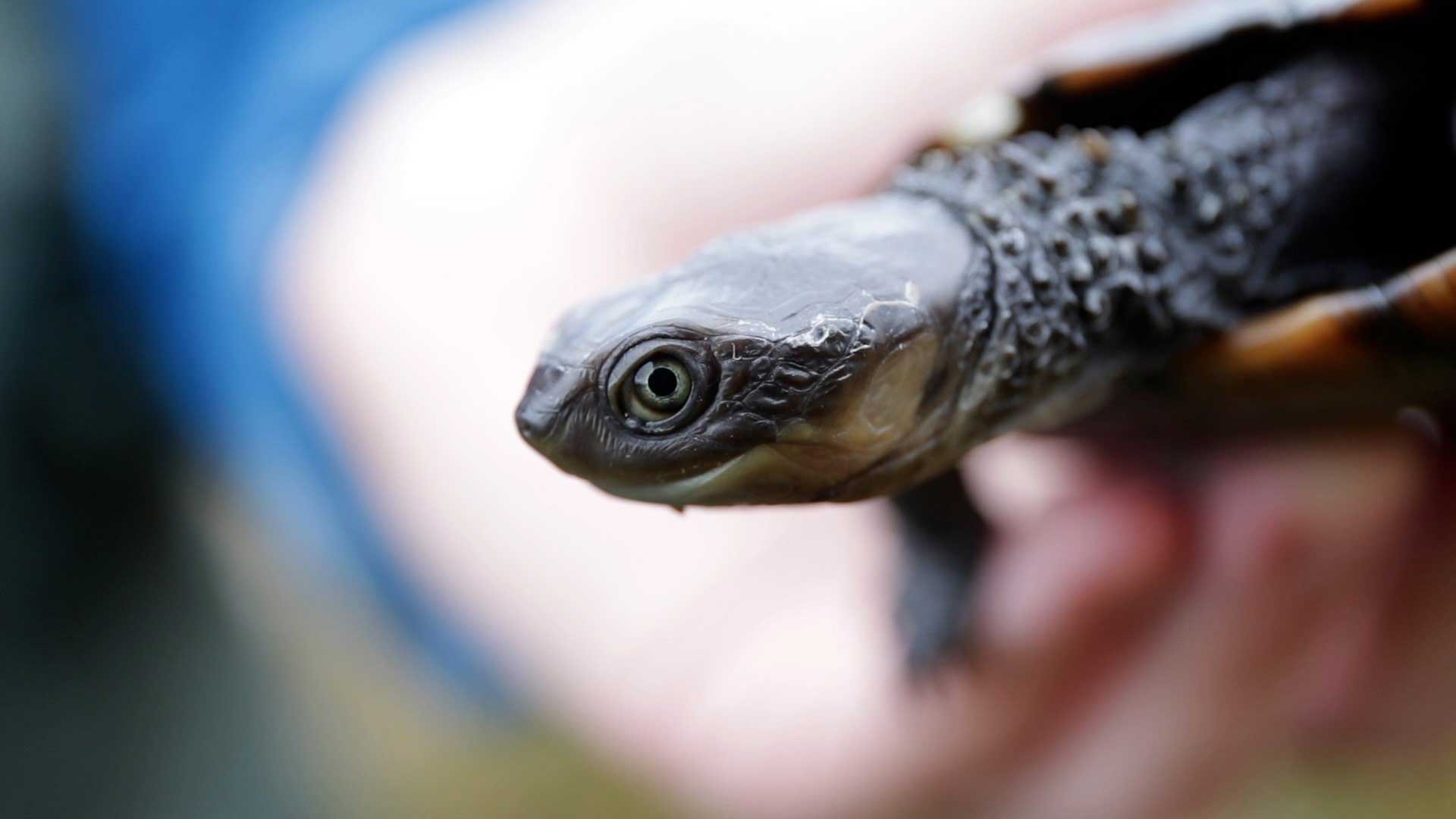One of the world’s first attempts to relocate an animal species threatened by climate change – Western Australia’s critically endangered Western Swamp Turtle – has delivered early findings about the importance of replicating the natural micro-climate conditions.
"We know that assisted colonisation as a response to climate change will only work if species are well suited to their new habitats."
Associate Professor Nicki Mitchell
The Western Swamp Turtle, which was thought to be extinct until a chance discovery in the 1950s, now numbers fewer than 70 wild adults due to habitat loss and the impacts of a drying climate and groundwater extraction in the south-west region of WA.
In the Assisted Colonisation project led by researchers from The University of Western Australia, 48 juvenile Western Swamp Turtles bred at Perth Zoo were released into three swamp sites with contrasting micro-climate conditions. The northernmost site was near Moore River and the southernmost near Northcliffe – about 380 km apart.
 Image credit: Nicolas Rakotopare/Threatened Species Recovery Hub.
Image credit: Nicolas Rakotopare/Threatened Species Recovery Hub.
Researchers monitored the turtles using ‘biologgers’ attached to the turtles, with body temperatures, activity and sun-basking time being key measures of performance that could be related to each individual’s growth.
Lead author Siobhan Paget, a former Bachelor of Philosophy student from UWA, said juvenile turtles released into more southern, and slightly colder, wetland were less active and grew more slowly than their northern counterparts.
“We concluded that slower growth of turtles in the southern wetland was likely a result of their lower body temperatures, stemming from a reduced ability to thermoregulate in water,” Ms Paget said.
“For assisted colonisation of this species to be successful, wetlands must offer aquatic microclimates that are sufficiently warm to promote foraging activity that leads to growth and maturation.”
Associate Professor Nicki Mitchell, who leads the project at UWA’s School of Biological Sciences, said the research is believed to be the first in the world to explore the introduction of a threatened vertebrate species to a new habitat because of climate change and delivers broader lessons about the value of an experimental approach to species conservation.
“We know that assisted colonisation as a response to climate change will only work if species are well suited to their new habitats,” she said.
“However, it is hard to anticipate how a species will perform in novel circumstances, especially for a species like the western swamp turtle which may live for 100 years.
“Careful planning and evaluation of assisted colonisation will become increasingly vital as we confront our biodiversity crisis. Fortunately, for the western swamp turtle, while we have abandoned one trial site for assisted colonisation, we are seeing better outcomes at an alternative southern site.”
The study was published in Functional Ecology. Researchers from Murdoch University and WA’s Department of Biodiversity, Conservation and Attractions also contributed to the research.
Media references
Carrie Cox (UWA Media & PR Adviser) 08 6488 6876
